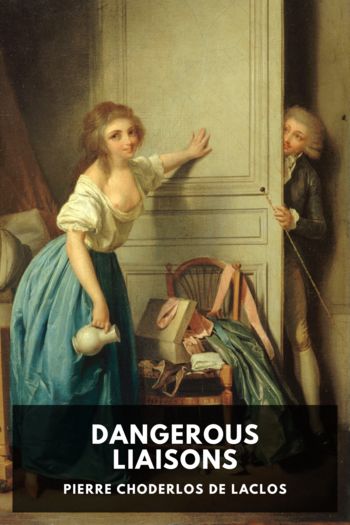Farewell, My Queen, Black Moishe [electric book reader .txt] 📗

- Author: Black Moishe
Book online «Farewell, My Queen, Black Moishe [electric book reader .txt] 📗». Author Black Moishe
“Tell me, Madam, I pray you, does this convey any sense to you? I have learned—it was Monsieur de Noailles who made me privy to this information at my Couchee—that the people want not only bread, they also want power. When insanity reaches that point, I am, I confess, completely at a loss. I had hitherto understood power to be a burden of duties and responsibilities that we inherited and that we accepted out of humility and out of respect for the One who had invested us with that charge. A kind of curse hidden beneath an ermine cloak. Is it possible I have been mistaken? Could there be something desirable about power?”
At Mass, I noticed an extreme languidness in the ritual gestures and even in the prayers. The congregation was rather small, and the few who had turned out appeared exhausted. The King and the Queen were models of piety and dignity. As was the Count de Provence, whereas the Count d’Artois was distracted. The Mass celebrated Camillus de Lellis, a saint the King held in affection on account of his aunts, who were particularly devoted to Saint Camillus. Indeed, with the passing years, the two elderly ladies had come to venerate more and more the founder of the Order of Fathers of a Good Death. They had in their possession sachets containing a few pinches of dust from the stones of the monk’s cell. So far, they had not broken into this precious hoard; they were waiting for a day when they were really sick. They might easily have chosen this day, for Louis XV’s daughters looked to be suffering extreme fatigue. They could not sleep. They complained that they were surrounded by conspirators and even said they were within hearing of antiroyalist conversations, coming from the mezzanine rooms just above their ground-floor apartments. Which, added Madame Adélaïde, placed them in the front line of fire. “They” had only to smash the panes of glass, and “they” would be in the royal aunts’ suite of rooms . . . Incidentally, speaking of “them,” where were “they” now? The fragile assurance I had felt that morning was gone. Beggars, brigands, madmen, they were coming our way, no doubt about it. They were an army, growing steadily as fresh recruits arrived. Women and children were joining to swell the ranks. They had plundered L’Arsenal and Les Invalides, and certainly did not lack for weapons. Or fury. The market women led the march, knives in hand. Once again, the congregation sang Plaudite Regem manibus. But nobody applauded.
THE KING’S LUNCHEON;
ITS SUDDEN AND DISASTROUS CONCLUSION
(four o’clock in the afternoon).
Luncheon was served, after a considerable delay. The succession of Royal Viands had been standing unserved in the stairway for at least two hours. Personally, I was famished, and I was not the only one. But instead of going off with all due haste in search of something to eat, at least a score of the people who had attended Mass also insisted on attending the King’s Luncheon. This was not according to etiquette, as some of us were not normally eligible to take part in this ceremonial repast, and also because it was Thursday, the day reserved for the more intimate Petty Luncheon. Hence there was no reason to remain, as we did, all stubbornly lined up facing the rectangular white-linened table at which the King and Queen had taken their places. No reason, except—I speak of course for myself—a kind of silly, childish, superstitious behavior: from the moment I found out that the Queen had made up her mind to flee, every time she disappeared from view I was afraid I was losing her forever. As long as I could see her, I was restored, if not to peace of mind, at least to bearable anxiety. The same must have been true for the rest of that meager band of diners. Like me, they could feel their world collapsing. To see the King or the Queen gave them comfort. No doubt the royal couple sensed this need, for neither one spoke up to request that we leave them in peace. The King could have had his attendants say to us, “Ladies and gentlemen, this way, if you please.” He refrained from doing so. In any event, at that meal, etiquette was to suffer more than one breach, and our presence, though irregular, was not the worst . . .
Everything started off well, however. The King and the Queen sat down side by side in the lovely blue and gold room where the table had been set. The Almoner in Ordinary, Father Cornu de La Balivière, blessed the table, and their Majesties





Comments (0)